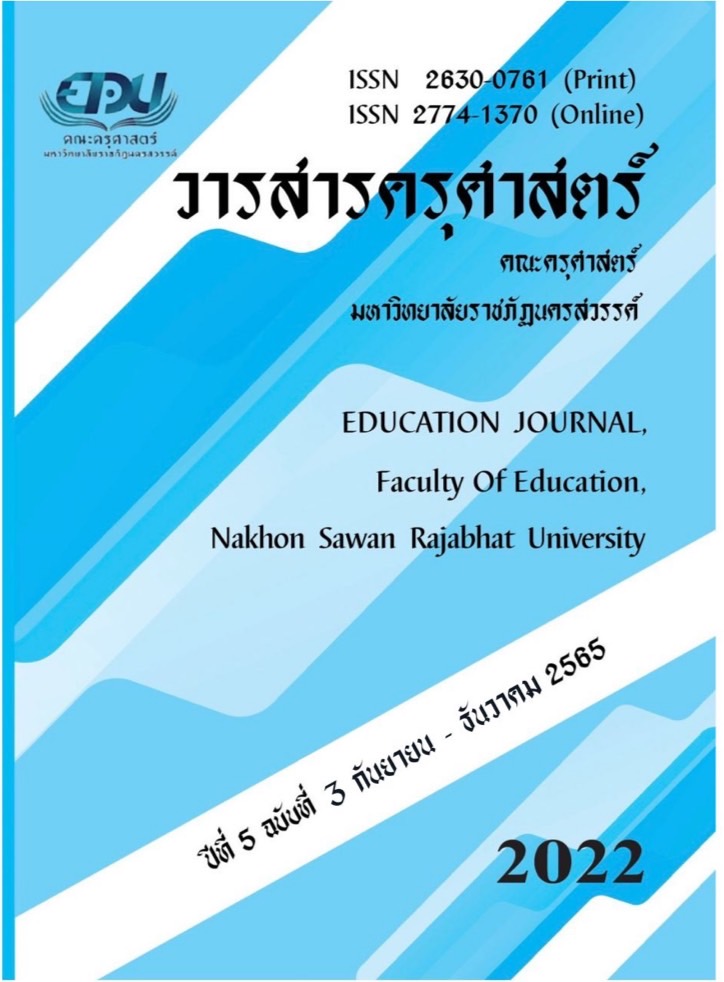The Development of Competency According to the Four Sublime States of Mind for Executives Tambon Health Promoting Hospital
Main Article Content
Abstract
This development of competency according to the Four Sublime States of mind for executives Tambon Health Promoting Hospital, so that the administrators of the district with management based on principles the Four Sublime States of mind and and competency of management. The research of documents by synthesis related research includes theory of 1) civil service development strategy 2009 – 2013 2) management concepts 3) the management concept of Tambon Health Promoting Hospital 4) the concept of competency of the director of Tambon Health Promoting Hospital and 5) concepts of management principles according to the Four Sublime States of mind. The results of this study shows that,
The model for competency development according to the Four Sublime States of mind for executives Tambon Health Promoting Hospital. Which consists of 10 competencies of 1) leadership 2) motivating communication 3) coordination 4) team work 5) strategic planning 6) analytical thinking 7) good service 8) proactive community work 9) community engagement and 10) use of technology and information. The research results of the development of competency according to the Four Sublime States of mind for executives Tambon Health Promoting Hospital, and can be used to develop the competency of hospital administrators to promote higher politeness of the district. The Ministry of Public Health uses the competency components obtained from research studies in human resource management based on competencies, starting with manpower planning, selection and selection performance appraisals and compensation personnel training and development and career progression planning by being able to apply the competency development to public health personnel of the Tambon Health Promoting Hospital and expand the administrative results or use the research results to develop a curriculum that is suitable for the work of the personnel to meet the needs of the people in the future.
Downloads
Article Details

This work is licensed under a Creative Commons Attribution-NonCommercial-NoDerivatives 4.0 International License.
References
กระทรวงสาธารณสุข. (2564). แผนพัฒนาสุขภาพแห่งชาติฉบับที่ 12 พ.ศ. 2560-2564 ที่ 12. นนทบุรี: ผู้แต่ง.
ปิยะธิดา ทองอร่าม. (2552). การพัฒนาระบบการประเมินการปฏิบัติงานสาหรับอาจารย์มหาวิทยาลัยเอกชนตามแนวคิดของการประเมินแบบอิงมาตรฐาน และการให้ผลตอบแทนตามสมรรถนะ. ดุษฎีนิพนธ์ปริญญาดุษฎีบัณฑิต (บริหารการศึกษา). จุฬาลงกรณ์มหาวิทยาลัย.
พระเทพโสภณ (ประยูร ธมฺมจิตฺโต), และเสถียรพงษ์ วรรณปก. (2546). มณีแห่งปัญญา: หนังสือคู่มือสำหรับนักบริหาร. กรุงเทพฯ: ธรรมสภา.
สถาบันวิจัยและพัฒนาระบบสุขภาพชุมชน. (2563). กรอบระบบคุณภาพของเครือข่ายหน่วยบริการปฐมภูมิ ฉบับปฐมบท.กรุงเทพฯ: อุษาการพิมพ์.
สมเด็จพระญาณสังวร สมเด็จพระสังฆราช, (เจริญ สุวฑฺฒโน). (2543). รวมธรรมะ. กรุงเทพฯ: อมรินทร์พริ้นติ้งแอนด์พับลิชชิ่ง.
________. (2551). อำนาจอันยิ่งใหญ่แห่งกรรม. กรุงเทพฯ: รุ่งเรืองวิริยะพัฒนาโรงพิมพ์.
สำนักงานคณะกรรมการข้าราชการพลเรือน. (2548). การปรับใช้สมรรถนะในการบริหารทรัพยากรมนุษย์. กรุงเทพฯ: ผู้แต่ง.
สำนักงานพัฒนานโยบายสุขภาพระหว่างประเทศ. (2564). รายงานฉบับสมบูรณ์แผนยุทธศาสตร์ทศวรรษการพัฒนาโรงพยาบาลส่งเสริมสุขภาพตำบล (พ.ศ.2555 - 2564). กรุงเทพฯ: สหมิตรพริ้นติ้งแอนด์พับลิชชิ่ง.
สำนักงานหลักประกันสุขภาพแห่งชาติ. (2564). คู่มือปฏิบัติงานกองทุนหลักประกันสุขภาพในระดับท้องถิ่น หรือพื้นที่ (ฉบับปรับปรุง พ.ศ. 2557). กรุงเทพฯ: สหมิตรพริ้นติ้งแอนด์พับลิชชิ่ง.
สุจิตรา ธนานันท์. (2554). การพัฒนาทรัพยากรมนุษย์: Human Resource Development. (พิมพ์ครั้งที่ 6). กรุงเทพฯ: ทีพีเอ็น เพรส.
อลงกรณ์ มีสุทธา, และ สุมิตร สัชฌุกร. (2551). การประเมินผลการปฏิบัติงาน การประเมินโดยใช้ Competency. (พิมพ์ครั้งที่ 14). กรุงเทพฯ: สมาคมส่งเสริมเทคโนโลยี (ไทย-ญี่ปุ่น).
McClelland, D. (1973). Testing for Competency Rather than for Intelligence. American Psychologist, 28(1): 1 - 14.
Mirabile, R. J. (1985). A model for competency-based career development. Personnel, 62(4): 30 - 38.
Spencer, L. M., & Spencer, P. S. M. (2008). Competence at Work models for superior performance. New Jersey: John Wiley & Sons.


